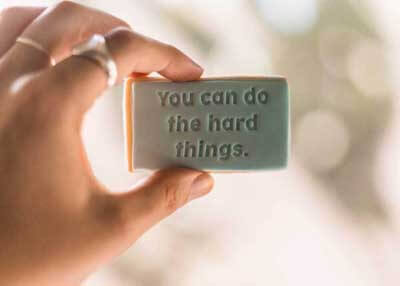Unlocking Success: Nurturing Teamwork Skills in Children
Fostering teamwork skills in children is crucial as it not only promotes positive social interactions but also sets the stage for future success. These skills are highly valued in academic, professional, and personal contexts. Children who develop strong teamwork skills are better equipped to excel in group projects, resolve conflicts amicably, and build meaningful relationships.

Teamwork skills in kids are essential attributes that go beyond group projects and playdates. These skills are the foundation upon which children develop critical life skills, shaping their future opportunities and successes. In this article, we'll delve into what teamwork skills entail, their profound impact on a child's life, and the doors they open for future success.
Teamwork skills in kids refer to the ability of children to collaborate effectively with their peers or team members in various group settings. These skills encompass a range of interpersonal and cooperative abilities that enable children to work together harmoniously to achieve common goals or complete tasks. Teamwork skills involve communication, cooperation, empathy, and the capacity to contribute to a group effort while respecting the contributions of others. Children with strong teamwork skills can effectively share ideas, take on different roles within a group, resolve conflicts constructively, and maintain a positive and supportive attitude toward their teammates. These skills are essential for fostering a sense of unity, mutual understanding, and accomplishment within a team or group of individuals, which can be valuable in a variety of contexts throughout a child's life.
- Key Components of Teamwork Skills in Kids
- Aspects of Teamwork Skills Development
- The Transformative Effects on Life
- Future Success and Opportunities
- Improving Teamwork Skills in Kids: Strategies for Success
- Online Tools
Key Components of Teamwork Skills in Kids
1. Communication Skills: Effective communication is the cornerstone of teamwork. Children must learn to express their thoughts clearly, actively listen to others, and convey their ideas and emotions appropriately. These skills facilitate the exchange of ideas within a team.
2. Cooperation: Cooperation involves working harmoniously with others towards a common goal. Children should understand the value of shared effort and be willing to contribute their strengths to the group while respecting others' contributions.
3. Empathy: Empathy means being able to understand and feel the emotions of others. It's crucial for kids to develop empathy, as it helps them relate to their teammates, appreciate their perspectives, and respond to their emotions with sensitivity.
4. Conflict Resolution: Conflicts inevitably arise in group settings. Teamwork skills include the capacity to address disagreements constructively, find solutions, and restore harmony within the team.
5. Responsibility: Children should learn to take ownership of their roles and responsibilities within a team. This component instills a sense of accountability and reliability, fostering trust among team members.
6. Adaptability: Adaptability involves being open to change and flexible in different situations. Kids with strong teamwork skills can adjust to evolving team dynamics and embrace new challenges.
7. Leadership and Followership: Teamwork skills encompass both leadership and followership qualities. Children should understand how to take the lead when necessary and, conversely, how to support and follow others when appropriate.
8. Problem-Solving: Effective teamwork involves collective problem-solving. Kids need to develop critical thinking skills and the ability to brainstorm solutions as a group.
Aspects of Teamwork Skills Development
1. Early Childhood Development: Teamwork skills begin developing in early childhood through activities like playdates, where children learn to share toys and take turns. Preschool and kindergarten settings further promote cooperation and communication.
2. Educational Environments: Schools play a significant role in nurturing teamwork skills. Group projects, team sports, and extracurricular activities provide opportunities for kids to practice and refine these skills.
3. Family Dynamics: The family environment significantly influences teamwork skill development. Parents and caregivers can model teamwork, encourage cooperation among siblings, and engage in family activities that require collaboration.
4. Peer Relationships: Interactions with peers are pivotal in building teamwork skills. Kids learn to navigate friendships, resolve conflicts, and work together on common interests.
5. Extracurricular Activities: Participation in sports, clubs, or community organizations exposes children to various teamwork scenarios, allowing them to develop and refine their skills in diverse settings.
6. Role of Educators: Teachers and educators have a crucial role in fostering teamwork skills. They can create inclusive classroom environments, assign collaborative projects, and teach conflict resolution techniques.
The Transformative Effects on Life
The cultivation of teamwork skills in kids has far-reaching effects on their lives:
1. Academic Success: Children who excel in teamwork tend to perform better academically. They are more engaged in group activities and projects, which often lead to enhanced learning experiences and higher grades.
2. Social Development: These skills help children forge healthier relationships with peers. They learn the value of cooperation, which is crucial for building friendships and resolving conflicts.
3. Emotional Intelligence: Empathy and effective communication, essential components of teamwork, contribute to a child's emotional intelligence. This can lead to improved mental well-being and a better understanding of others' emotions.
4. Future Opportunities: Teamwork skills are highly valued by employers, making them a significant asset in the job market. Children with strong teamwork abilities are better equipped for future careers and leadership roles.
Future Success and Opportunities
The impact of teamwork skills on future success cannot be overstated:
1. Career Advancement: In the professional world, teamwork is a cornerstone of success. Individuals who can collaborate effectively are more likely to excel in their careers, take on leadership roles, and enjoy greater job satisfaction.
2. Entrepreneurship: For those inclined toward entrepreneurship, teamwork skills are vital. Building and leading a successful business often requires working with diverse teams and partners.
3. Community Engagement: Beyond the workplace, these skills can lead to active participation in community and civic initiatives, enriching a child's life and contributing positively to society.
Improving Teamwork Skills in Kids: Strategies for Success
Enhancing teamwork skills in children is a valuable endeavor that equips them with essential life skills and sets the stage for future success. Let's explore a detailed guide on how to improve these skills effectively.
1. Encourage Group Activities:
Engage children in group activities, such as team sports, board games, or group projects. These activities provide opportunities to collaborate and interact with peers.
2. Teach Effective Communication:
Promote open and sincere communication within your family. Teach kids to express their thoughts, listen actively, and ask questions to better understand others.
3. Model Teamwork:
Be a role model for teamwork. Demonstrate collaboration and cooperation in your own interactions with family members and others.
4. Assign Chores and Responsibilities:
Allocate age-appropriate chores and responsibilities at home. This instills a sense of accountability and teamwork as children work together to complete tasks.
5. Foster Problem-Solving:
Encourage children to identify and solve problems as a team. Provide scenarios where they need to brainstorm solutions collectively.
6. Provide Constructive Feedback:
Offer feedback that focuses on their efforts, not just results. Encourage them to learn from mistakes and continuously improve.
7. Support Group Learning:
Sign up your kids for group learning opportunities like clubs, workshops, or classes that focus on teamwork development within structured environments.
8. Emphasize Empathy:
Help children grasp the concept of empathy through meaningful conversations about emotions and differing perspectives. Inspire them to step into someone else's shoes, encouraging them to imagine the feelings others might experience in different situations.
9. Team-Building Activities:
Arrange team-building activities either at home or within the school environment. These engaging exercises foster a sense of unity among children, cultivate trust, and enhance their problem-solving abilities.
10. Conflict Resolution Training:
Instruct kids in the art of conflict resolution, highlighting the importance of compromise, active listening, and the discovery of solutions that work for everyone involved.
11. Encourage Diverse Friendships:
Promote friendships among children who come from different backgrounds and have varying interests. This widens their outlook and boosts their aptitude for teamwork in diverse settings.
12. Celebrate Team Success:
Acknowledge and commemorate the team's triumphs as a unified entity. Highlight the significance of group accomplishments above individual feats.
13. Read and Watch Together:
Immerse yourselves in books, cinematic works, or documentaries that portray teamwork's significance. Take the opportunity to converse with your children about the messages and learnings conveyed.
14. Provide Positive Reinforcement:
Provide commendation and positive support whenever children display teamwork skills. This strengthens their actions and motivates ongoing growth.
15. Set Realistic Expectations:
Understand that teamwork skills develop over time. Be patient and supportive as children learn and grow in their ability to work with others.
16. Seek School Involvement:
Engage with teachers and educational institutions to build a conducive environment for teamwork. Champion school initiatives that prioritize working together and collaborative learning experiences.
17. Encourage Peer Mentoring:
Older brothers and sisters, as well as peers, can take on the role of mentors, offering guidance to younger children in teamwork while setting a positive example through their own behavior.
18. Reflect on Group Experiences:
After group activities or projects, encourage children to reflect on what went well and what could be improved. This fosters self-awareness and learning.
19. Offer Positive Role Models:
Familiarize kids with both real-life and fictional role models who demonstrate the essence of teamwork, motivating them to adopt these characteristics.
20. Be Patient and Supportive:
Finally, be patient and supportive throughout the journey. Encourage persistence and reassure children that teamwork skills are valuable assets that will benefit them throughout life.
By putting these methods into action and fostering an atmosphere that encourages teamwork, parents, caregivers, and educators can provide children with the tools to cultivate and hone these vital skills, charting a course towards achievement and satisfaction in their forthcoming endeavors.
Online Tools
Here are some useful online and offline tools and resources for improving teamwork skills in children:
1. Kid-Friendly Video Conferencing Tools: Zoom for Education offers a secure platform for virtual classrooms and group collaboration, with features tailored for educational use.
2. Online Whiteboard Collaboration: Jamboard by Google is a digital whiteboard where children can collaborate in real-time, brainstorm ideas, and work on projects together.
3. Educational Games and Activities: PBS Kids offers a variety of educational games and activities that encourage teamwork and problem-solving in a fun and interactive way.
4. Digital Storytelling and Collaboration: Storybird allows children to collaboratively create stories and artwork, promoting teamwork and creativity.
5. Virtual Escape Rooms: Breakout EDU Digital offers digital escape room games designed for educational purposes, encouraging teamwork and critical thinking.
6. Collaborative Note-Taking: Padlet is a digital bulletin board where students can collaborate by adding notes, images, and documents to a shared canvas.
7. Online Group Projects: Edublogs provides a platform for creating class blogs and collaborative projects where students can work together on various topics.
8. Digital Mind Mapping: Coggle is a user-friendly mind mapping tool that can be used for group brainstorming and organizing ideas.
9. Digital Collaboration Suite for Schools: Microsoft Teams for Education offers a comprehensive platform for classroom collaboration, assignments, and communication.
The journey of nurturing teamwork skills in children is a vital one, with far-reaching implications for their personal growth and future success. We've explored the intricate components, effective strategies, and invaluable resources that pave the way for children to become adept team players.
Teamwork skills are not mere attributes but the building blocks of a fulfilling life. These skills equip children to navigate the complexities of social relationships, excel academically, thrive in their careers, and contribute positively to their communities. By fostering open communication, modeling cooperation, and providing diverse learning opportunities, we empower the next generation to collaborate effectively, embrace diversity, and lead with empathy.
As parents, educators, and caregivers, our role is pivotal in shaping these young minds. Let us continue to create environments that champion teamwork, celebrate collective achievements, and instill in children the belief that together, they can achieve remarkable feats. In doing so, we not only prepare them for the challenges of an interconnected world but also inspire a future where unity, cooperation, and shared success are the cornerstones of a brighter tomorrow.
Dive into the wealth of knowledge within "44 Essential Kids' Skills: Fueling Future Success and Opportunities", where we unfold the key abilities essential for your child's overall development.
Written by: Administrator
Published on:
Last updated on:
You May Also Like:




Post a Comment
Join the conversation and share your thoughts on this article. Your comments add depth and perspective to our content, fostering a rich exchange of ideas.